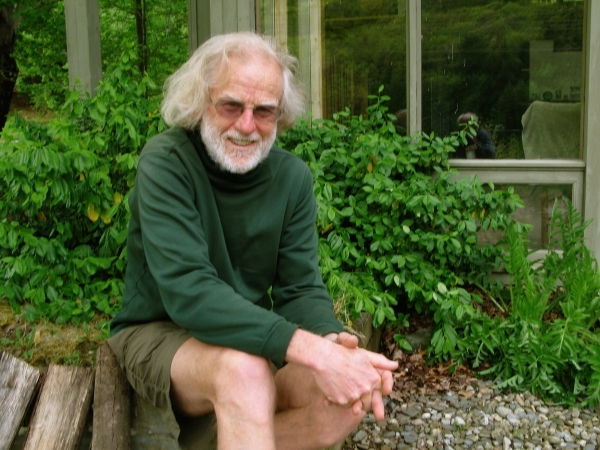J. Parker Huber, who died in July, was by any measure an extraordinary individual who lived, as much as anyone could live, according to his values, even when they ran contrary to much of what pass for values in 21st-century society.
For decades, Parker lived a quiet life of Thoreau-like simplicity in Brattleboro. And this was quite appropriate because he was one of the country's leading scholars and researchers on the life and times of Henry David Thoreau.
I came to know Parker while researching my book on Thoreau's travels in New England, Searching for Thoreau. Like his many other friends, I was completely charmed by him, admired his chosen lifestyle, and deeply admired the depth of his knowledge and his generosity in sharing it. We became friends, hiked together, meditated together, traded stories, and shared our latest writing projects.
The more I got to know Parker, the more profoundly I admired him. He consciously simplified his life by doing without two of the items that so complicate our times; he owned neither computer nor automobile.
And so, for many years, he could be seen bicycling around town, and if you wanted to contact him, you called him on the phone, wrote him a letter, or went to his home.
* * *
Though Parker's daily life might seem austere by middle-class standards, it was rich in spiritual depth and meaning. He wove together his Quaker faith, his scholarship, his love of nature and literature, and his many friends.
He published several books on Thoreau and John Muir. The best known of those was The Wildest Country, first published in 1981 and republished in 2008 by the Appalachian Mountain Club.
It broke new ground and set a new style in Thoreau scholarship, because Parker was not content to simply parse Thoreau's writing for insights - he walked and paddled the places that Thoreau had traveled in Maine, researching the routes and campsites that the great naturalist had traveled more than a century earlier.
He came to deeply appreciate the elemental simplicity of canoe camping, and he wanted to bring that into his everyday life at home. And so, he worked at refining his daily existence - walking and biking more, eating a simple vegetarian diet, retiring and rising earlier and earlier.
He subtitled a 2012 book “Journal of a Solitude at Seventy.” But he wasn't solitary. While he was quiet, and a true contemplative, he had a wide circle of friends who treasured him and visited him in his final illness.
Until recently, he enjoyed circle dancing, and he was active in both the Putney Quaker Meeting and St. Michael's Episcopal Church. He also stood a regular silent vigil for peace each Saturday morning on the steps of the Brattleboro post office.
* * *
Parker also worked diligently to encourage younger writers, especially in the field of nature writing. He helped start the Glen Brook community of nature writers, which meets regularly in Marlborough, N.H., and he initiated and edited Writing Nature, a newsletter that brought nature writers together.
Susan Pollack, a writer from Massachusetts who knew Parker from the Glen Brook community, called him “a dear, dear friend and a guiding presence to so many of us.”
Throughout his activities, Parker remained true to his vision of life - he was gentle, warm, focused, solidly grounded in his values.
His religion, he once told me, was an integral part of his life.
“I find my God,” he said, “in the light, the wind, the white birch bark.”
